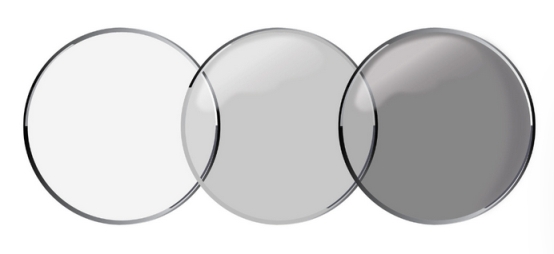Walking in bright sunlight can be torturous for those wearing contact lenses, as it reportedly makes many wearers ultra-sensitive to strong light. Yes, it's always a better idea to wear protective sunglasses when you are out in the bright sun with contacts in your eyes. But its even better if you get to wear contact lenses which get darker when you are out in the sun similar to some of those transition prescription eye glasses which get darker. The good news is that such type of transition lenses may soon become reality with the US FDA having approved of transition contact lenses.


"This contact lens is the first of its kind to incorporate the same technology that is used in eyeglasses that automatically darken in the sun," says FDA's Malvina Eydelman. The Acuvue Oasys transition contact lenses are from Johnson & Johnson Vision Care, Inc. The agency tested the new transition contact lenses on 24 patients to make sure there were no problems with driving during the day and at night. None of the users reported any trouble with the contacts. The FDA says that the Acuvue Oasys lens will be capable of daily use for up to 14 days, but warned that users should not sleep with them or expose them to water.
Ravi Goel, M.D., clinical spokesperson for the American Academy of Ophthalmology, however cautions that though this transitioning lens technology sounds interesting, these lens should not be assumed to be a substitute for wraparound, polarized sunglasses which provide almost 100% UV-protection. Long-term exposure to harmful UV-rays has an increased risk for macular dgeneration, cataracts and growths on or near the eyes. Patients should be told clearly that these contact lenses will not provide "UV protection" to the entire eye and adjacent structures, he adds. Johnson & Johnson Vision, responded to Dr Goel's apprehensions by saying that that its Acuvue Oasys contact lenses meet the FDA's Class I standard by blocking 99.9 percent of UVB and 99 percent of UVA. " Furthermore they add that since contacts only cover part of the eye, additional protection is advised: "We are still strong supporters of complete UV protection as noted on our product label where we strongly suggest the use of a wide brim hat and proper skin coverage with an effective dermatologic sunscreen."

Dr Goel further says that it will be interesting to note whether or not this helps with lethargy, eye strain, and headaches, which are typical symptoms that patients might have if they are in bright light and they are not protected with sunglasses or transitions. Many more people will need to try the contacts in real life (as opposed to a clinical trial) to see how well they work, he adds.
So would transition lenses look unnatural or unusual when worn? To allay the fears of lens wearers, Donna Lorenson, vice president in communications at Johnson & Johnson Vision says "There’s not going to be any creepy alien eyes," Lorenson further explains that on brown eyes, the contact lenses should be almost imperceptible. If you have lighter-colored eyes, however, you might notice a slight gray tint. And unlike transition eyeglasses, which take some time to fade back to clear when one moves from bright sunlight to indoors, these lenses would fade back pretty fast.
References:
1)https://www.cbsnews.com/news/fda-approves-first-contact-lens-that-gets-darker-in-sunlight/
2)https://www.buzzfeed.com/theresatamkins/fda-approved-contact-lenses-darken-sun?utm_term=.vyWkpxRaP#.pv1Roy1G7
Comments
Post a Comment
Comments posted on this blog are moderated and approved only if they are relevant, on-topic and not abusive. Avoid using links to your site/blog in the body of your comment unless it is highly relevant to the post.